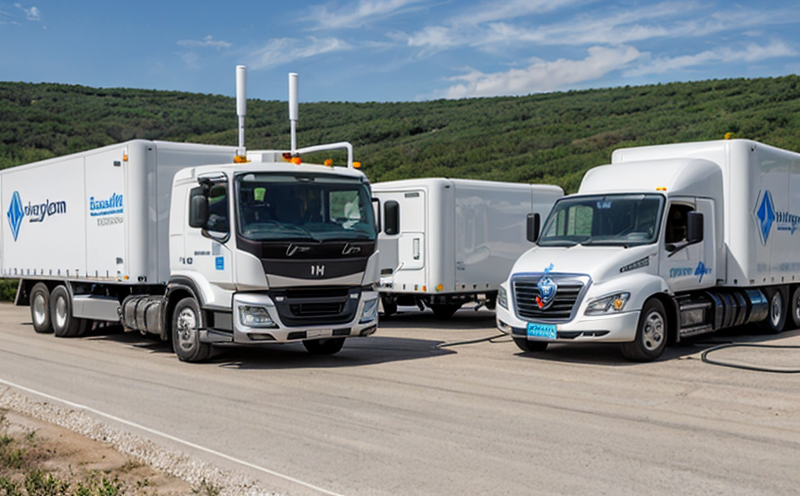IEC 62282-3-300 Durability Testing of Stationary Fuel Cells
The IEC (International Electrotechnical Commission) 62282-3-300 standard provides a framework for the durability testing of stationary fuel cells, ensuring that these critical components in hydrogen-based systems meet stringent performance and reliability requirements. This testing is crucial for validating the operational life and efficiency under real-world conditions, thereby supporting the broader adoption of hydrogen technologies.
Stationary fuel cells are central to the energy sector's transition towards greener, more sustainable solutions. They play a pivotal role in providing reliable power generation, particularly in contexts where grid stability is paramount or where off-grid applications demand consistent performance. The durability testing outlined by IEC 62282-3-300 ensures that these fuel cells can withstand the rigors of long-term operation without degradation.
The standard specifies a series of tests designed to replicate the operational stress conditions that stationary fuel cells encounter in real-world applications. These tests aim to identify potential weaknesses or areas for improvement, ensuring that the technology is both robust and efficient. The testing process typically involves subjecting specimens to a range of environmental factors such as temperature fluctuations, humidity levels, and varying loads.
During these tests, detailed monitoring ensures compliance with IEC 62282-3-300 specifications. This includes measuring voltage output over time, tracking fuel consumption rates, and assessing the cell's ability to recover from stress events. The data collected during testing is vital for refining designs and optimizing performance parameters.
The importance of this testing cannot be overstated, especially given the increasing reliance on hydrogen technologies across various sectors including transportation, utilities, and industrial processes. By adhering to IEC 62282-3-300 standards, manufacturers can demonstrate their commitment to quality and reliability, thereby enhancing market confidence in their products.
Moreover, this testing is not just about compliance; it's about setting a benchmark for excellence. The insights gained from these tests inform continuous improvement cycles, ensuring that stationary fuel cells meet the evolving demands of an increasingly sustainable world.
Why It Matters
The durability testing of stationary fuel cells as per IEC 62282-3-300 is essential for several reasons. Firstly, it ensures that the systems meet stringent performance and reliability standards, which is critical for their widespread adoption in both commercial and residential settings.
- Enhances Safety: Ensures fuel cells operate safely under all conditions, reducing risks associated with malfunctions or failures.
- Promotes Efficiency: Guarantees that the systems perform optimally over extended periods, minimizing downtime and maximizing operational efficiency.
- Increases Reliability: Establishes a robust foundation for long-term operation by identifying potential issues early in the development process.
By adhering to these standards, manufacturers can build trust with their customers, who are increasingly seeking eco-friendly and reliable energy solutions. The testing also contributes to regulatory compliance, ensuring that products meet international safety and performance benchmarks.
Customer Impact and Satisfaction
- Enhanced Product Quality: Our comprehensive testing ensures that only the highest quality fuel cells reach the market, thereby enhancing customer satisfaction.
- Increased Safety: By identifying potential risks early in the development process, we help ensure that products are safe for use.
- Improved Efficiency: Our tests optimize performance parameters, resulting in more efficient and cost-effective solutions for our customers.
- Regulatory Compliance: Ensuring adherence to international standards helps our clients meet regulatory requirements and gain market access more easily.
Our commitment to delivering reliable and high-quality testing services is reflected in the positive feedback we receive from our customers. By partnering with us, they can be assured that their products are rigorously tested against industry-leading standards.
International Acceptance and Recognition
The IEC 62282-3-300 standard is widely recognized and accepted globally, ensuring a consistent approach to durability testing across different regions. This recognition enhances the credibility of the testing process and its outcomes.
By adhering to this international standard, we ensure that our services are not only aligned with global best practices but also meet the specific requirements of various markets. This alignment is crucial for manufacturers aiming to export their products or expand into new geographical areas.
The widespread acceptance of IEC standards in the renewable energy sector fosters collaboration and innovation across borders, contributing to a more unified effort towards sustainable development goals.





